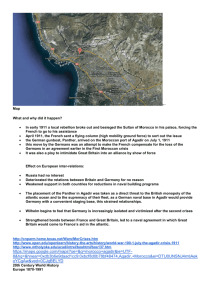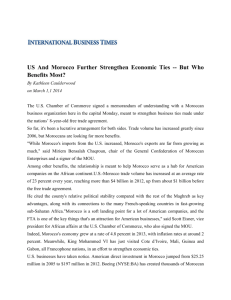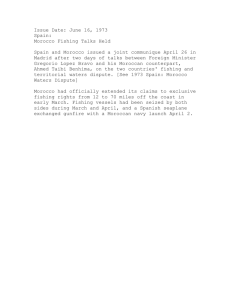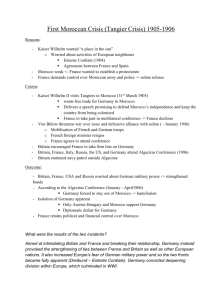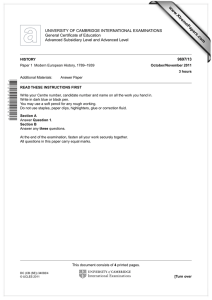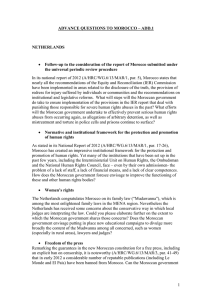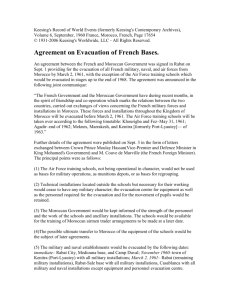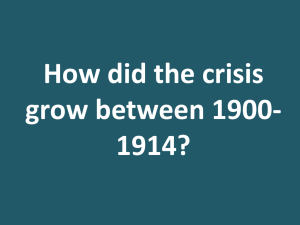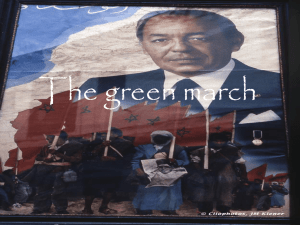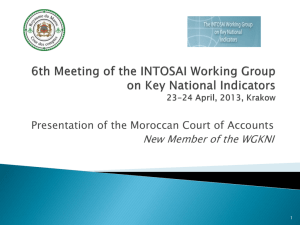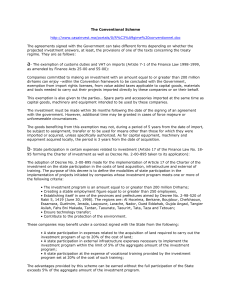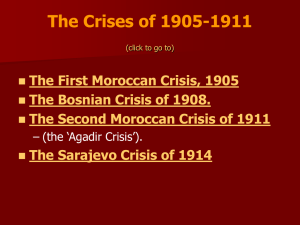Second Moroccan Crisis: Gunboat Diplomacy & Perspectives
advertisement
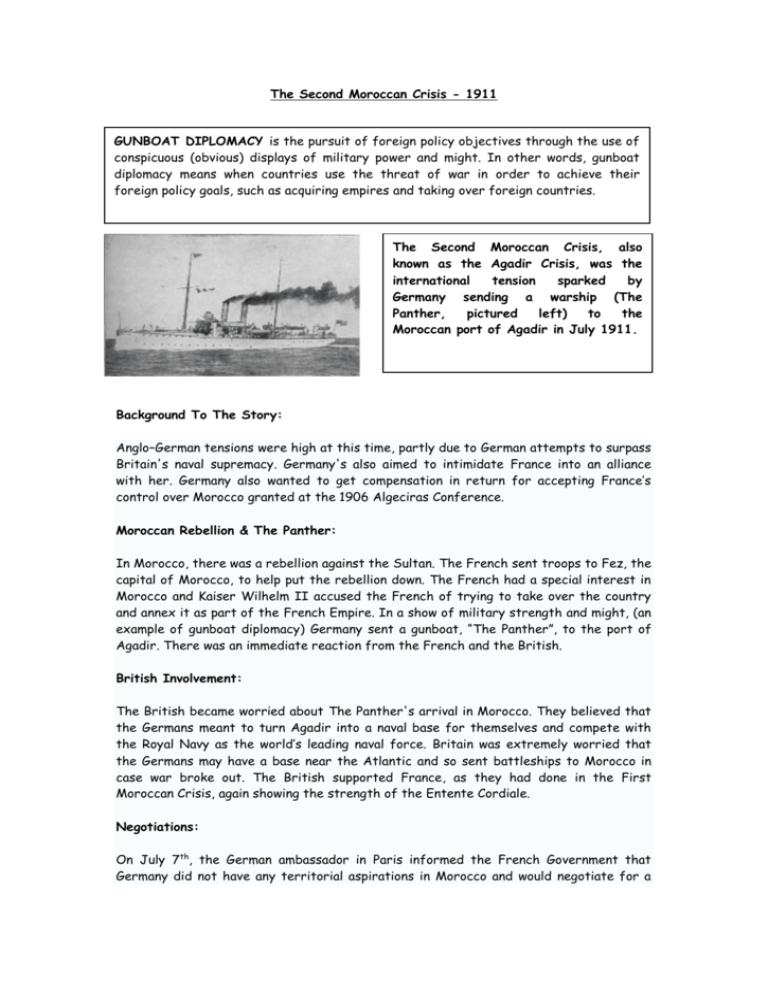
The Second Moroccan Crisis - 1911 GUNBOAT DIPLOMACY is the pursuit of foreign policy objectives through the use of conspicuous (obvious) displays of military power and might. In other words, gunboat diplomacy means when countries use the threat of war in order to achieve their foreign policy goals, such as acquiring empires and taking over foreign countries. The Second Moroccan Crisis, also known as the Agadir Crisis, was the international tension sparked by Germany sending a warship (The Panther, pictured left) to the Moroccan port of Agadir in July 1911. Background To The Story: Anglo–German tensions were high at this time, partly due to German attempts to surpass Britain's naval supremacy. Germany's also aimed to intimidate France into an alliance with her. Germany also wanted to get compensation in return for accepting France’s control over Morocco granted at the 1906 Algeciras Conference. Moroccan Rebellion & The Panther: In Morocco, there was a rebellion against the Sultan. The French sent troops to Fez, the capital of Morocco, to help put the rebellion down. The French had a special interest in Morocco and Kaiser Wilhelm II accused the French of trying to take over the country and annex it as part of the French Empire. In a show of military strength and might, (an example of gunboat diplomacy) Germany sent a gunboat, “The Panther”, to the port of Agadir. There was an immediate reaction from the French and the British. British Involvement: The British became worried about The Panther's arrival in Morocco. They believed that the Germans meant to turn Agadir into a naval base for themselves and compete with the Royal Navy as the world’s leading naval force. Britain was extremely worried that the Germans may have a base near the Atlantic and so sent battleships to Morocco in case war broke out. The British supported France, as they had done in the First Moroccan Crisis, again showing the strength of the Entente Cordiale. Negotiations: On July 7th, the German ambassador in Paris informed the French Government that Germany did not have any territorial aspirations in Morocco and would negotiate for a French protectorate (French control over Morocco) on the condition that France gave Germany "compensation". This compensation would be control over the French Congo. David Lloyd George, the British Prime Minister, delivered on July 21st his famous “Mansion House Speech”, in which he declared that national honor was more precious than peace; a speech understood all over Europe to be a definite warning to Germany that she could not impose an unreasonable settlement on France. Nervousness of the possibility of war was heightened by this inflammatory speech and war began to seem inevitable. At the Franco-German negotiations initiated on July 9th in 1911, Britain supported France and Germany accepted France's control over Morocco in return for territory in the French Congo (now the Republic of the Congo). This 275 000 km² territory, known as Neukamerun, became part of the German colony of Kamerun and part of German West Africa. However, this arrangement only lasted briefly, as it was captured by the allies in World War I. Consequences: The Agadir crisis had harmful consequences for the peace of Europe. Because Germany had suffered a diplomatic defeat, she was unwilling to suffer another diplomatic defeat ever again. On the other hand, the British, French and Russian governments were alarmed by the aggressive attitude of the Germans. They remembered that Germany had tried to dictate things to the world using force three times since 1905; firstly in the First Moroccan Crisis of 1905, secondly, in the Bosnian Crisis of 1909 and finally in the Second Moroccan Crisis of 1911. After the crisis, the Entente powers exchanged information about the conditions of their army and navy. In 1912, Britain and France made a naval agreement that in the event of war, the British fleet would guard the North Sea and the English channel, while the French fleet was to be deployed in the Mediterranean. 1.) Write a definition of “gunboat diplomacy” in your book. 2.) Germany has often been viewed as the aggressors (to blame) in this incident. However, were they simply protecting their own interests just as the French and British were? Your task is to produce two newspaper articles. One should tell the story of the Second Moroccan Crisis from the German perspective and the other should tell the story from the French perspective. You should complete the newspaper articles on a whole page each in your book.
